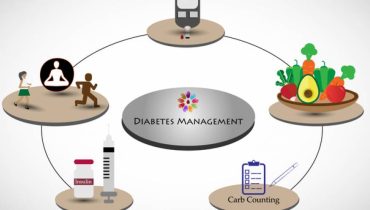Dementia is a broad term used to describe a decline in cognitive function severe enough to interfere with daily life. It is most commonly associated with aging and primarily affects the elderly. Understanding the manifestations of dementia can help in early detection, better management, and providing the necessary support to those affected. This article explores the common signs of dementia in the elderly, the importance of early diagnosis, and how to support loved ones experiencing this condition.
What is Dementia?
Dementia is not a single disease but a collection of symptoms that result from various brain disorders. Alzheimer’s disease is the most common cause of dementia, accounting for 60-80% of cases. Other types include vascular dementia, Lewy body dementia, and frontotemporal dementia. Each type has unique characteristics, but they all lead to a progressive decline in cognitive abilities.
Common Signs and Symptoms
Dementia manifests differently in each individual, but there are several common signs and symptoms to be aware of:
Memory Loss: One of the most noticeable early signs is short-term memory loss. Individuals may forget recent events, conversations, or names but remember events from the distant past. Repeatedly asking the same questions and relying heavily on memory aids can be indicators.
Difficulty Performing Familiar Tasks: People with dementia may struggle with routine activities they used to perform easily, such as cooking, managing finances, or driving. They might get confused about the steps involved or forget how to complete tasks altogether.
Language Problems: Finding the right words, following conversations, or understanding spoken or written language can become challenging. This can lead to frustration and social withdrawal.
Disorientation: Individuals may become lost in familiar places or have difficulty understanding spatial relationships. They might not recognize their own home or get disoriented about the time, day, or season.
Poor Judgment: Dementia can impair judgment and decision-making abilities. This might manifest as poor financial decisions, inappropriate behavior, or neglecting personal hygiene.
Mood and Personality Changes: Sudden changes in mood, behavior, or personality are common. People with dementia may become depressed, anxious, paranoid, or easily agitated. They might lose interest in activities they once enjoyed.
Withdrawal from Social Activities: Due to difficulties in communication and changes in mood, individuals may withdraw from social activities, hobbies, and interactions with family and friends.
Changes in Visual and Spatial Abilities: Difficulty judging distances, reading, or recognizing faces can occur. These visual-spatial problems can affect daily tasks like driving and walking.

The Importance of Early Diagnosis
Early diagnosis of dementia is crucial for several reasons:
Treatment and Management: While there is no cure for most types of dementia, early diagnosis allows for treatments that can slow progression, manage symptoms, and improve quality of life.
Planning for the Future: Early diagnosis gives individuals and their families time to plan for future care needs, legal matters, and financial arrangements.
Support and Resources: Identifying dementia early provides access to support groups, resources, and services that can assist in managing the condition and maintaining quality of life.
Safety: Understanding the diagnosis can help implement safety measures to prevent accidents and ensure the individual’s well-being.
Supporting Loved Ones with Dementia
Caring for someone with dementia can be challenging but also rewarding. Here are some strategies to provide effective support:
Educate Yourself: Learn about dementia and its progression. Understanding what to expect can help you provide better care and empathy.
Create a Safe Environment: Ensure the living environment is safe and easy to navigate. Remove hazards, use labels for common items, and establish routines to reduce confusion.
Encourage Social Interaction: Social engagement can help maintain cognitive function and emotional well-being. Encourage participation in activities they enjoy and involve them in family events.
Promote Physical Health: Encourage regular physical activity, a balanced diet, and adequate hydration. Physical health significantly impacts cognitive function and overall well-being.
Communicate Effectively: Use clear, simple language and maintain eye contact. Be patient and give them time to respond. Avoid correcting or arguing, and instead, offer reassurance and support.
Seek Professional Help: Utilize healthcare providers, therapists, and support groups. Professional guidance can help manage symptoms and provide emotional support for both the individual and the caregiver.
Take Care of Yourself: Caregiving can be demanding. Ensure you take time for self-care, seek respite care when needed, and connect with support groups for caregivers.
Dementia in the elderly is a complex condition that affects millions of individuals and their families. Recognizing the signs and symptoms early can lead to better management and improved quality of life. Providing a supportive, safe, and engaging environment can make a significant difference in the lives of those affected. With education, patience, and compassion, caregivers can navigate the challenges of dementia and offer meaningful support to their loved ones.


















